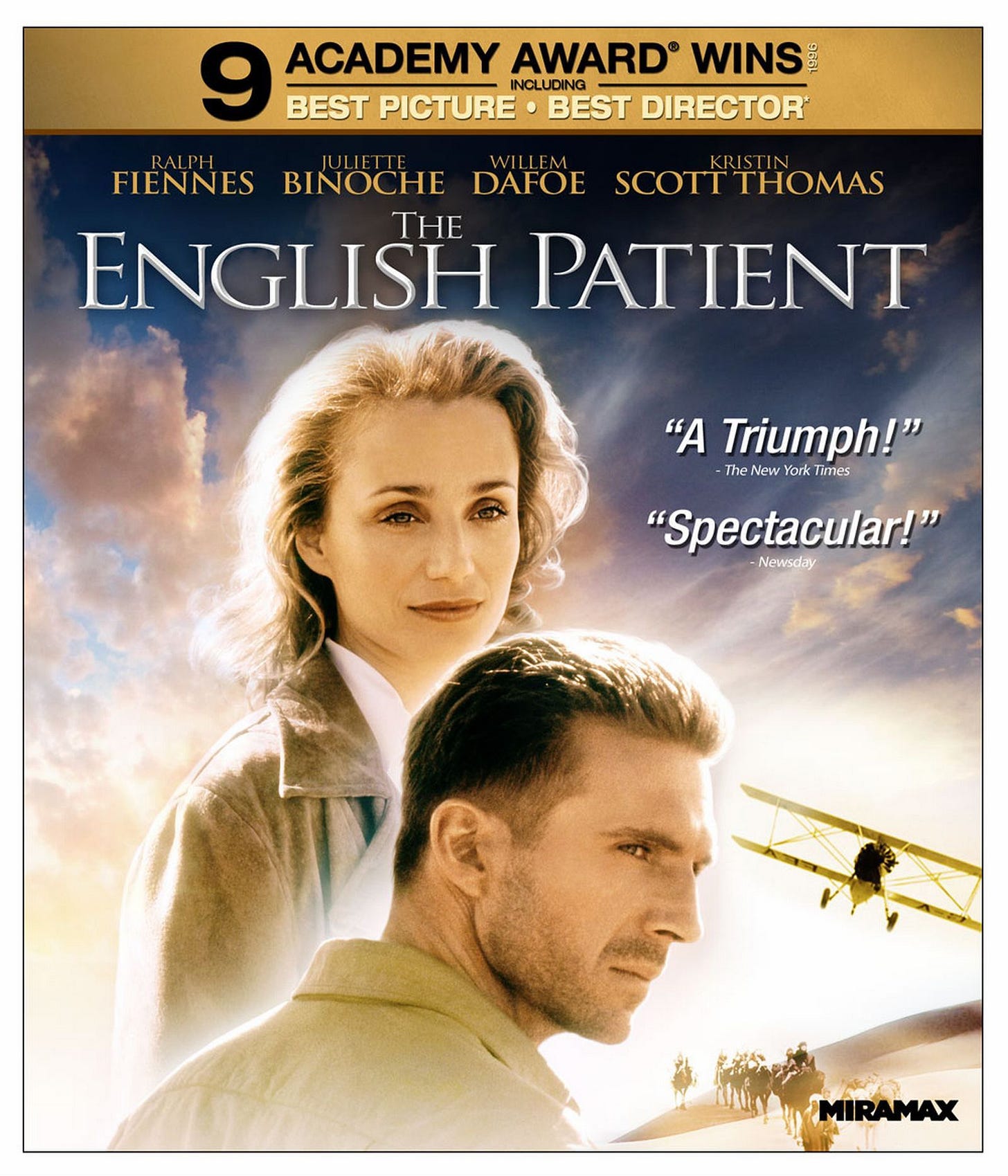Plot Spoilers in this post
Last Rites When I am gone, take up your kitchen broom, sweep three stars down from the cobwebbed sky. Place the first in my coffin; its bleach-bright light will suffuse my guttered flame, waken life’s soiled toil to the tear-dried home, prepared. Place the second in my tended garden, where my gardener will look for me, where it started. Place the last on a chain around your neck; wear it as a sacrament of the lights we kindled. Then when the stars tumble from the sky at the end, our shining will illuminate scars on love’s invincible face. From The Call of the Unwritten - A Collection of Poems by Adrian G R Scott Buy Here
I have just rewatched the wonderful film - The English Patient and as I type I am listening to its beautiful soundtrack. My wife Wilma and I went to see it in 1996 when it came out. We had only been married 6 years and our children were very small. We hade not long moved to Sheffield.
It moved me deeply at the time and again today as I watched it again. The heartbreak of a love that is bulldozed by a war that runs roughshod over it is so poignant. It reminds me of another novel made into a film - Doctor Zhivago. The book of the English Patient by Michael Ondaaajte is wonderfully written and like Zhivago, the film does do it justice and is a work of art in its own right. However, if you really want to get the power of the story read the novels, they are both so poetic and soul-stirring.
At the end of the film of the English Patient - directed by Anthony Minghella - Katherine (played by Kirsten Scott-Thomas) has died in the dark Cave Of Swimmers deep in the desert. She is waiting for Count László Almásy (played by Ralph Fiennes) to come back and rescue her. Tragic misunderstandings and imprisonments fatally delay him. She has his copy of Herodotus’s Histories and she writes in them a journal of her last thoughts.
“We die containing a richness of lovers and tribes, tastes we have swallowed, bodies we have plunged into and swum up as if rivers of wisdom, characters we have climbed into as if trees, fears we have hidden in as if caves. I wish for all this to be marked on my body when I am dead.”
Michael Ondaatje, The English Patient
The unbearable heartache of parting from someone you love touched me and left me stunned as I left the cinema 28 years ago and I wrote the poem that is at the head of this post. The idea that we die containing all the richness of lovers and tribes, tastes and bodies and the marking of this as we pass filled me with a desire to speak for myself of these mysteries.
The story is full of tribes, and lovers, of wonder and loss. Hana a nurse who looks after Almásy at the end of his life has a beautiful liaison with a Sikh Bomb Disposal Officer in the deserted Monastery they are both inhabiting. At one point he takes her to a local church and he uses ropes to hoist her up to the ceiling to look at the most exquisite frescoes. I think they are by Giotto.
They made me think again about the way our life is full of these illuminating experiences, every once in a while, and often when we least expect them. They fill us up and I hope with all the fervour I can muster, that we somehow carry them onwards in some mysterious way. We are all the product of our parents and the tribes they came from and the rivers they became. Now as I am much closer to the end than 28 years ago my poem, though somewhat grandiose, still feels congruent to the sentiments in the English Patient.
“I believe in such cartography – to be marked by nature, not just label ourselves on a map like the names of rich men and women on buildings. We are communal histories, communal books. ... All I desired was to walk upon such an earth that had no maps.”
Michael Ondaatje, The English Patient
Take a minute to read the poem again and find the soundtrack and listen to I'll Always Go Back To That Church and think - who are your lovers and tribes and what would you want to say to them.







This is a wonderful poem. Brilliant.
Adrian, lovely poem, and reflection on “The English Patient”. I hope you and yours are well. Thank you.